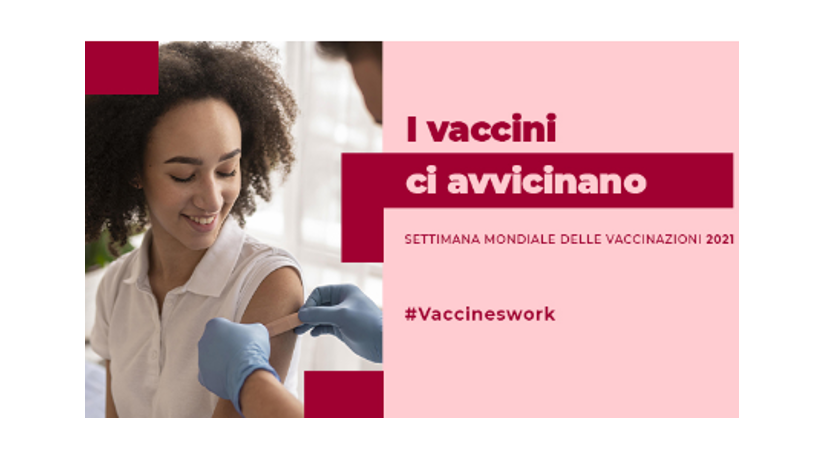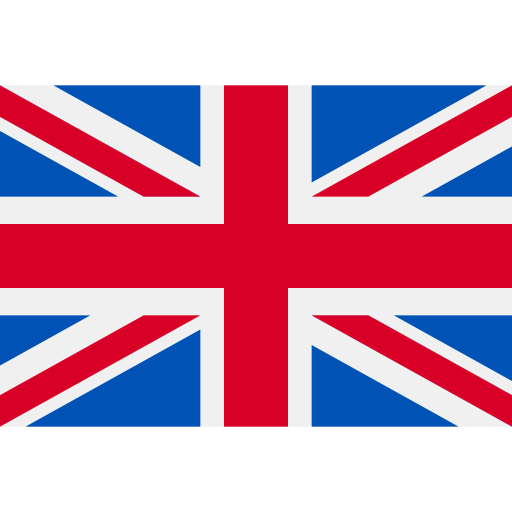European Immunisation Week 2021 kicks off.
The European Region of the World Health Organisation marks European Immunisation Week (EIW) every year to raise awareness of the importance of vaccinations in the fight against infectious diseases. From 26 April to 2 May, the focus of EIW will be on the role of vaccines in various aspects of preventive healthcare and individual well-being, especially in the context of the current pandemic. As in previous years, EIW coincides with World Immunisation Week (WIW 24-30 April); both campaigns, therefore, share the common theme: "Vaccines bring us closer".

First implemented in 2005 by a small number of European countries, European Immunisation Week (EIW) originated as part of World Immunisation Week (WIW) with the aim of showcasing the importance of immunisation as a life-saving tool in the fight against infectious diseases at all ages. More than three decades since its inauguration, EIW has become one of the most visible public health campaigns in the European Region and is undoubtedly relevant also in the global health landscape.
Each year, this important anniversary celebrates the intense work carried out through joint action by the Member States of the European Region, with the involvement of all WHO National Offices and partners, Ministries of Health, Professional and Parental Organisations, Local Health Authorities, national and international Departments of Prevention and Public Health, which, together with all citizens, carry out vital training, education and awareness-raising activities including, in particular, refresher sessions for health workers, dissemination of information material, press conferences and much more.
In this period of profound COVID-19 emergency in which Public Health is burdened not only by the serious consequences linked to the SARS-CoV-2 infection but also by the plausible possibility of the re-emergence of other vaccine-preventable infectious diseases, it is even more important to emphasise the importance of a global preventive action and to reassure the public that an active immunisation service cannot, and must not, be neglected.
The current pandemic has reminded the world that infectious diseases do not recognise geographical and/or political borders and that they all, particularly vaccine preventable diseases, require a global, rather than local approach to their prevention and control. In this regard, in a recent study published in Vaccine (Maintain and increase vaccination coverage in children, adolescents, adults and elderly people: Let's avoid adding epidemics to the pandemic: Appeal from the Board of the Vaccination Calendar for Life in Italy: Maintain and increase coverage also by re-organizing vaccination services and reassuring the population), the authors (Bonanni P., et al.) describe how, since April 2020, vaccination coverage of children, adolescents and adults in many Italian regions has dropped dramatically, threatening to reverse the hard-won progress in extending vaccination to the whole population.
Never as much as today, in this unprecedented period of disorientation, discouragement and bewilderment for the public, has the necessity of vaccination been so evident - not only for the protection of health and life for everybody, but also for each person’s awareness of the importance and responsibility we inherited from the first vaccinator Edward Jenner with his first smallpox vaccine patent back in 1798.
And it is precisely the slogan chosen this year: "Vaccines bring us closer", at a time of isolation imposed by the measures to contain the spread of SARS-CoV-2, that gives voice to the intrinsic value of vaccination as the result of:
- a sharing of objectives that unites Public Health around the world in pursuit of its mission of achieving good healthcare;
- a communion of intentions and strategic coordination: on the basis of which the competencies of each are made available to the other in order to build a common project such as maintaining the population’s state of good health (e.g., by maintaining constantly high levels of vaccination coverage for all the vaccinations in the Vaccine Calendar for Life);
- a connection among people: which, by reflecting on both the individual and the community, forges the social value of vaccination practice both as a responsibility towards oneself and towards those who, for a variety of reasons (clinical, difficulty in accessing services, etc.) cannot be vaccinated.
In this context, Vaccinarsinsardegna.org finds it fitting to contribute to these two important celebrations (EIW and WIW) by recalling the many initiatives implemented by Public Health Institutes, policy makers and health professionals, who through the involvement of parents, children and adolescents will spread the key messages of vaccination through information campaigns, interviews, technical meetings, expert panel debates, television programmes, scientific conferences and many other activities.
World Immunization Week 2021 will also mark the launch by WHO of the Immunization Agenda 2030 (ATTACHMENT 1), an ambitious new global strategy for a world where everyone, everywhere and at every age, benefits fully from vaccination prevention. The Immunization Agenda 2030 will help maintain hard-won immunisation successes, recover from the disruptions caused by COVID-19, and increase equitable access to vaccines for all.
Among the proposals on the European scene is the European Commission's initiative to launch the new European Vaccination Information Portal to raise awareness of the benefits of vaccines by providing accurate, scientifically proven information in easy-to-understand language. The site, available in 24 languages, is available at https://vaccination-info.eu.
In addition to the European Commission's portal, the VaccinarSì Network, managed by the Italian Society of Hygiene and Preventive Medicine (SItI), has also entered the international scene with the VaccinarSìEu website, a portal for medical and scientific communication on vaccinations providing access to further information on preventive vaccination (https://www.vaccinarsi.org/eu).
Among the World Immunisation Week initiatives at national level, experts from the Italian Society of Paediatrics (SIP) and the Italian Society of Neonatology (SIN) will remind people that, even more so in times of pandemic, it is important to protect themselves from vaccine-preventable diseases by continuing with pre-established vaccination programmes and making up any appointments missed during the lockdown period. To reinforce this message, for one hour a day (from 12.00 to 13.00), professionals from the two companies will be available to answer users’ questions via a telephone helpline, in a bid to promote the spread of correct information.
In addition, on Thursday 29 April at 12.00 noon, the SIP Facebook page will host a live broadcast with experts from the two scientific societies aiming to dispel parents' doubts on issues relating to vaccine-preventable infectious diseases and to the vaccines themselves (users are reminded that they can email their questions to: info@sip.it). Finally, on the SIN and SIP websites users can find the booklet “Non è mai troppo presto” (ATTACHMENT 2), sponsored by the Ministry of Health and dedicated to childhood vaccinations. This booklet will soon be available in Arabic, Chinese, Filipino, Russian, English and Spanish.
Un particolare approfondimento, quest’anno sarà rivolto alla vaccinazione anti SARS-CoV-2/COVID-19 e, soprattutto, ai numerosi vaccini sviluppati in tempi eccezionali, grazie agli sforzi e alle risorse straordinarie messe in campo a livello mondiale. Tuttavia, l’OMS sottolinea come i vaccini, pur costituendo il fulcro centrale della soluzione al problema, non siano l'unico strumento necessario per contrastare la diffusione del virus; occorre che, per i prossimi mesi, ciascuno offra il proprio contributo nella lotta alla pandemia ad iniziare dal rispetto delle misure atte a prevenzione e alla diffusione dell’infezione. Solo collaborando insieme, infatti, sarà possibile porre fine alla pandemia e costruire un mondo più sano e sicuro in ogni parte del mondo.
A special focus this year will be on SARS-CoV-2/COVID-19 vaccination and, above all, on the many vaccines developed in these exceptional times, thanks to the extraordinary efforts and resources deployed worldwide. However, WHO stresses that vaccines, while being the central focus of the solution to the problem, are not the only tool needed to counter the spread of the virus. It is necessary that, for the coming months, everyone makes their own contribution to the fight against the pandemic, starting with compliance with the measures to prevent and limit infection. Only by working together will it be possible to end the pandemic and build a healthier and safer world for all.
We urge all users to stay connected to our site so as not to miss the next updates. Vaccinarsinsardegna.org wishes to mark EIW and WIW with a famous statement on the importance of vaccines throughout the world:
"Immunization has been a great success story for public health. The lives of millions of children have been saved, millions of people now have the chance of a healthier and longer life, a greater chance to learn, play, read and write, to move freely without suffering."
Nelson Mandela - Nobel Peace Prize, 1993



